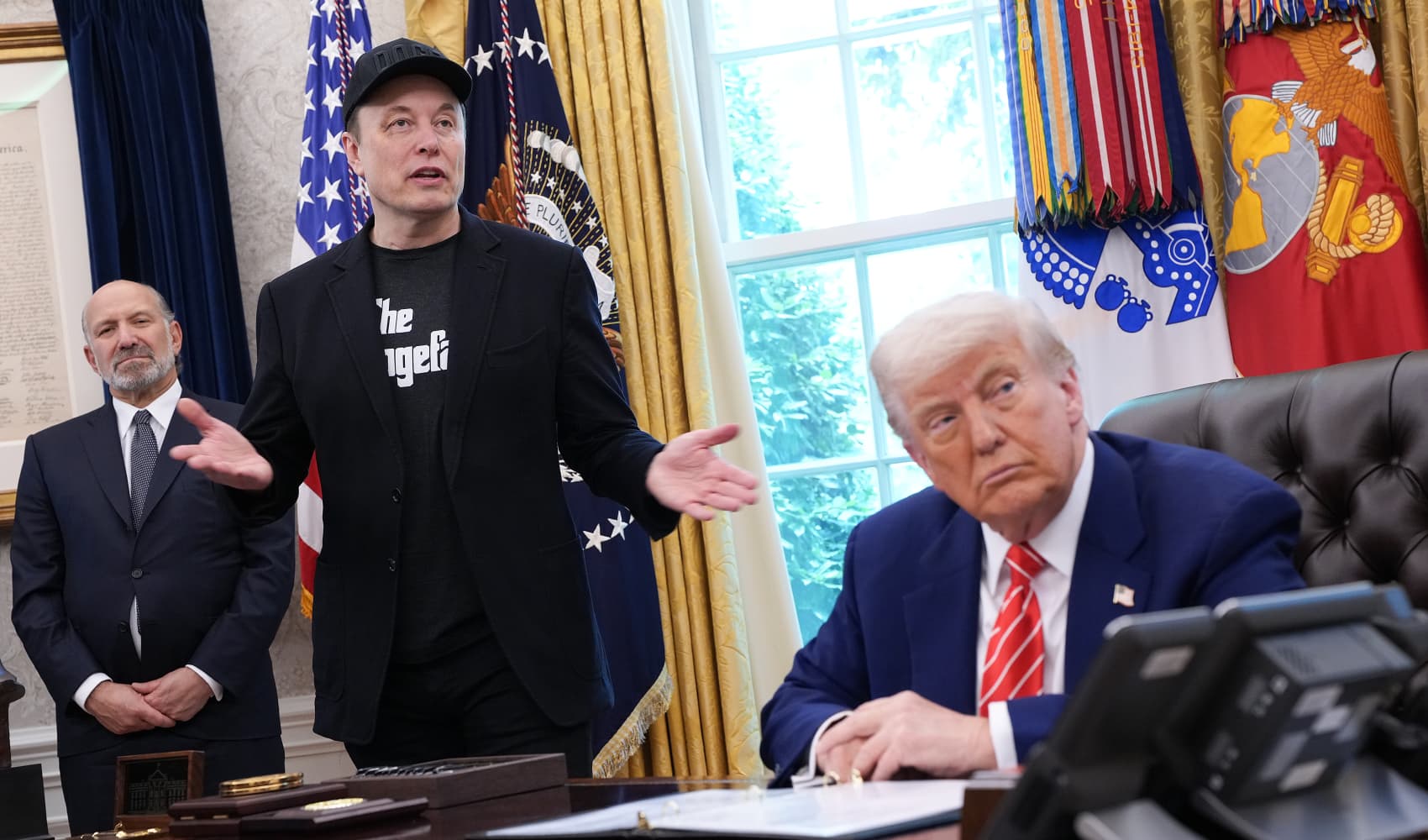Elon Musk’s announcement of the “American Party” has ignited a public feud with President Donald Trump, who labeled the move “ridiculous” and accused Musk of going “off the rails.” The fallout underscores deepening divisions over tax policies and the future of electric vehicles.
Trump says Musk has gone ‘off the rails’ after Tesla CEO announces new political party

Key Takeaways:
- Elon Musk launches the ‘American Party’ to challenge the two-party system.
- Trump criticizes Musk’s move, calling it ‘ridiculous’ and saying he’s gone ‘off the rails.’
- Disagreements over tax policies and electric vehicle mandates fuel the fallout.
- Musk’s previous support for Trump has turned into a public feud.
- Invest Azoria’s CEO postpones ETF launch in response to Musk’s political involvement.
Musk Introduces the ‘American Party’
Tech billionaire Elon Musk announced the formation of the “American Party” over the weekend, signaling his entry into the political arena with an aim to challenge the longstanding dominance of the Republican and Democratic parties. In a post on X Saturday, Musk wrote, “By a factor of 2 to 1, you want a new political party and you shall have it! Today, the America Party is formed to give you back your freedom.”
Trump’s Sharp Rebuke
President Donald Trump swiftly responded to Musk’s announcement with biting criticism. On Truth Social late Sunday, Trump declared, “I am saddened to watch Elon Musk go completely ‘off the rails,’ essentially becoming a TRAIN WRECK over the past five weeks. The one thing Third Parties are good for is the creation of complete and total disruption and chaos.”
He further elaborated in comments reported by Reuters, “I think it’s ridiculous to start a third party. We have a tremendous success with the Republican Party. The Democrats have lost their way, but it’s always been a two-party system, and I think starting a third party just adds to confusion.”
From Allies to Adversaries
The public feud marks a dramatic shift from the previously amicable relationship between the two figures. Musk had invested millions sponsoring Trump’s re-election bid and was appointed by the president to lead the Department of Government Efficiency, known as DOGE, tasked with identifying areas to cut federal spending. Their alliance soured following disagreements over a spending bill.
Policy Disagreements Ignite Tensions
Central to their conflict are differing views on tax policies and the future of electric vehicles. Musk had been a proponent of an “Electric Vehicle Mandate” aimed at accelerating the adoption of electric cars. Trump, opposing this initiative, signed a tax and spending cut bill on July 4 that ended tax credits for buyers of electric vehicles. In his post, Trump claimed he had warned Musk about terminating the EV tax credit during his campaign, to which Musk allegedly had “no problems.”
Business Community Reacts
The rift has extended into the business sector, with James Fishback, CEO of investment firm Invest Azoria and a Trump ally, expressing concern over Musk’s political ambitions. Fishback announced the postponement of the initial public offering of the Azoria Tesla Convexity ETF “in direct response” to Musk’s formation of a new party. He urged Tesla’s board to address the issue, stating, “This creates a conflict with his full-time responsibilities as CEO of Tesla. It diverts his focus and energy away from Tesla’s employees and shareholders.”
Implications for the Political Landscape
Musk’s entry into politics and the ensuing clash with President Trump underscore a significant moment in U.S. politics, highlighting deep divisions over economic policies and the direction of national leadership. As the situation develops, it raises questions about the impact of third-party movements and the balance between corporate leadership and political involvement.











